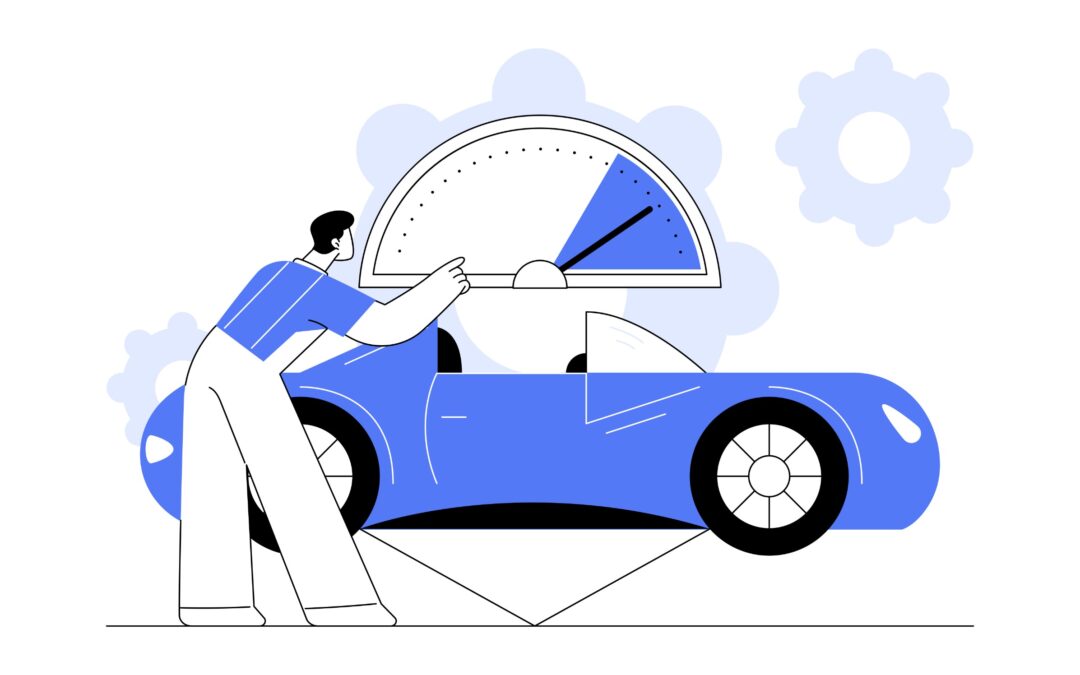My husband and I just purchased our first hybrid vehicle. Cars mean many different things to people – the “American Love Affair” with the automobile is totally a thing. They are idolized, customized, personalized, and anthropomorphized, from KITT to Lightning McQueen. Ad campaigns focus heavily on the personality of the potential car owner (those Subaru dog commercials get to me every time). For the curious, this love affair has its roots in an interesting story involving a 1961 TV show, Groucho Marx, and urban planning. Who knew?
But for me, a vehicle can almost feel like an extension of my physical self. Cars also show up in my dreams. Like, all the time. Often my first thought about them is that they represent “how I move through the world.” Symbolically, they can also represent personal freedom, the journey through life, or how you approach obstacles.
Anyway, the whole hybrid proposition was an essential new consideration for us from the environmental standpoint. But what does it mean, internally, to drive a hybrid? To have half of your energy derived from dead dinosaurs, and half from the same kind of power that lights up your outdoor holiday display?
I’m sure many of you already knew – but it was news to me – that the electric battery charges whenever we coast or put our foot on the brakes in our car. It’s called, appropriately enough, regenerative braking. In other words, whenever we’re not actively using gas, we’re building up the store of electric energy. There’s even a nifty little graphic that pops up on the dashboard that shows us when and how it’s happening.
This information was a bit mind-blowing to me. Imagine…hitting the brakes, coasting, in essence slowing down or actively letting go, recharges the machine and allows you to travel much further.
Boom. That’s it. That’s the metaphor – slow your roll, friends. Post over.
OK, just kidding. How often do we convince ourselves that if we push a little harder, stay up a little later, or take on just a bit more responsibility, we’ll get more done or be more successful? Cram all the things into all the available time. We must use our time wisely, not fritter it away!
As a result, how many times do we hit the wall, exhausted and depleted, riding in on fumes to our next stop? Or to our next year?
You might be familiar with The Power of Full Engagement by Jim Loehr and Tony Schwartz (which I will confess I’ve not read because this nifty YouTube video explains it well enough). It references the observation that elite athletes who incorporated short and frequent recovery rituals into their performances had much higher outcomes. Those who pushed hard throughout, (in essence, never “letting up on the gas”) did not.
I was talking with someone recently about how for them, this particular season is not the “fun” holiday – it’s often the stressful one. The one that comes with all of the expectations (we were in agreement that Halloween is superior in its flagrant expression of pure enjoyment). Most of us can’t park that holiday car in a locked garage and throw away the key for the sake of recharging. And beyond the winter celebration situation, you may fear that you can’t completely stop all of your activities without losing your momentum, or forgetting your place, or even getting accused of wasting time (the horrors). Yet it seems, in most ways, the reverse is true. There’s even evidence that something like regular meditation seems to create more time for us (which, I think, is the effect of bringing more energy in by slowing the system – essentially the same thing as regenerative braking).
I wonder if, in all of the busyness, you could give a hybrid experience a try?
We don’t have to screech to a stop, but we can make some different decisions. What are some little ways you might tap those brakes, or tap into some breaks? What are the activities that you know well enough that you can coast a bit? When could you breathe? Be still? And what might happen?
Because I hope to coast a bit myself, this will be the last post of 2023. Thank you for reading – I’ll see y’all next year.





Well, I did NOT know that the hybrid cars charged when the vehicle is coasting or braking. That is sort of mind blowing, and a great image to hold in my house about the power of pause, recovery, and rest.
I sometimes do workout videos, following this trainer on Youtube. She always tells us, at the end of the workout, “Don’t run away. Stay for the cooldown. It is part of the workout.” She also talks about how the rest of our day will impact our results. You need to eat well, for example, if you want the muscles to build after the hard work.
I’ll be holding this image in my head and sharing it with clients. It can be very hard, especially for parents of little ones. As long as they are awake, they are demanding attention.
Yesterday one of my daughters, who does not have children, took a gingerbread house kit to her cousins so she could decorate the house with the children. They was a win/win, because she loved it, the child had a blast, and the parent got a chance to rest. I think we could all benefit by seeking out more of these types of situations, right?
I always skip those cooldowns, too (unless I’m in a live class and have no choice)! It’s so easy to dismiss them as not being part of the “real” workout. Excellent point. And yes, it sounds like your daughter has the right idea about breaks. I hope you all have a wonderful holiday!
I’ve been told before about athletes and training with built in periods of rest. Historically, I’m the one who goes like the energizer bunny all day long from 1 task to the next and then at the end of the day the battery is out of juice and I’m done. I’m learning how to build in moments of non-work activities. I’m also learning how to delegate more. It’s not that I want to do less or rest more, I’m just feeling like the hybrid experience may allow me to feel less like the bunny beating the drum and more like a trained athlete.
Delegation is a great way to recharge too (assuming you have a good delegatee) – it’s hard to let go sometimes, though, right? Here’s to you experiencing the holiday with plenty of juice in your battery, Diane!
I always love the way you take everyday experiences and find the life lessons in them. And you’ve done it yet again.
I’m with you 100% in that we can’t be pushing the gas pedal all of the time. We need to break, stop, or coast. And in those pauses, something wonderful happens. It’s a slight rest. And in the case of your new vehicle (congrats!), not pushing on the gas actually recharges your (or the car’s) battery. Amazing!
As in life. We can’t go, go, go all the time without those pauses. I’m not quite ready to call it a year yet. I still have several things to wrap up for 2023 and prep for 2024. But there will be planned stopping times and I’m looking forward to those to re-energize.
I also agree about the power of meditation. For me, it’s a daily morning practice. On the occasion that I miss my morning practice and do it later in the day, I feel the difference. It helps to ground and prepare me for the day. And even though I do it when I wake up after a good night’s sleep, meditating definitely gives me an extra boost of energy and focus for the day.
I wish you a warm, happy, restful, holiday season and New Year! Happy driving and recharging!
First, as a former TV executive, I love any reference to the heyday of TV, and “Merrily We Roll Along” was a happy throwback. Second, your metaphor is FABulous! (Could you hear me singing that word?) So often, we think we have to apply and all-or-nothing rubric. Certainly, sometimes we must completely walk away to refresh and get our bearings, but at this time of year, I think that just causes more stress. It’s too hard to let our brains drop-kick the thoughts of our work so that we can play. But doing just enough of each, work and play, means we recharge and accomplish.
I super-duper love how you’ve positioned this. I hope you have a happy, healthy new year!